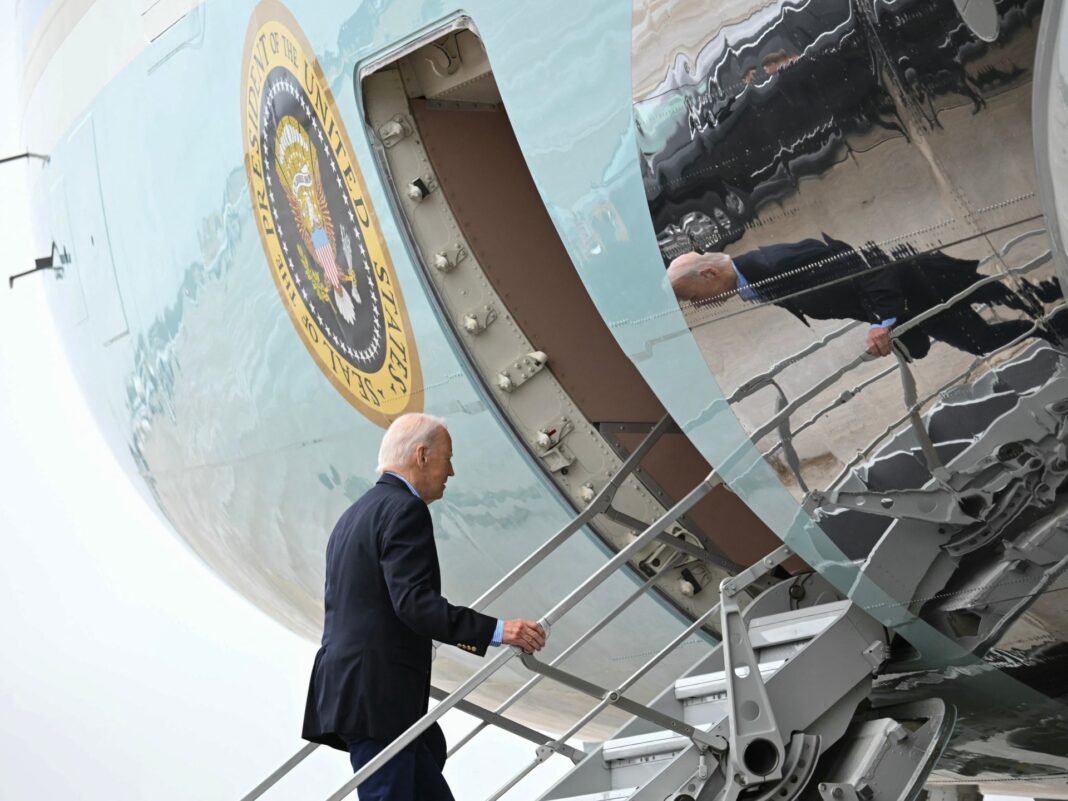Any Israeli response to Iran’s missile barrage should be ‘proportional’, says the US president.
United States President Joe Biden has voiced opposition to any strikes on Iran’s nuclear sites in response to Tehran’s missile attack on Israel.
When asked by reporters on Wednesday whether he would back such retaliation, Biden stated “the answer is no”.
Biden’s comments come a day after Iran fired some 180 ballistic missiles at Israel, its second attack on the country since April. Iran’s most recent attacks on Israeli military sites have come in response to the assassination of key Iran-allied figures, including Hamas leader Ismail Haniyeh and Hezbollah leader Hassan Nasrallah.
Israel’s Prime Minister Benjamin Netanyahu vowed Iran would “pay” for the strike, which reportedly did not cause any serious casualties in Israel but killed one Palestinian in the occupied West Bank.
Analysts warned Israel may seize the chance to launch attacks on Iran’s nuclear facilities, a target its leaders have long eyed.
“The risk of an [Israeli] attack on the nuclear programme is particularly high because Iran’s defensive shield Hezbollah is on its knees,” Ali Vaez, the Iran Project director at the International Crisis Group think tank, told Al Jazeera.
“US forces are already in the region shielding Israel, and for Israel, this is potentially a once-in-a-generation opportunity to take care of a major threat that it has perceived from Iran over the past few decades,” he said.
Former Israeli Prime Minister Naftali Bennett explicitly called for such an attack in a post on X, saying Israel must “act now to destroy Iran’s nuclear program”.
“We have the justification. We have the tools”, Bennett said.
Biden calls for ‘proportional’ response
In the wake of Iran’s attack, Biden emphasised that the US is “fully supportive of Israel”.
Other US officials warned Iran would face “severe consequences”, with State Department spokesman Matthew Miller telling reporters he was not “ruling anything out”.
On Wednesday, after Biden spoke with allied leaders, he said he would not support an attack on Iran’s nuclear facility. Any Israeli response to Iran, he told reporters, should be “proportional”, a position shared by all nations part of the G7 grouping, including Canada, France, Germany, Italy, Japan and the United Kingdom.
The White House also said Biden and G7 leaders spoke about coordinating a new round of sanctions against Iran.
Whole Middle East at risk
Iranian President Masoud Pezeshkian said that the attack was warranted, but that Tehran did not seek war with Israel.
Iran’s armed forces warned that Israel would face “vast destruction” if it retaliated.
The escalation between two of the Middle East’s strongest militaries – while war continues to rage in Gaza and Lebanon – has stoked fears of an even broader conflict in the region.
“The idea of Iran and Israel going after each other under the auspices of the United States will burn everyone in the Middle East and beyond,” said Al Jazeera’s senior political analyst Marwan Bishara.







